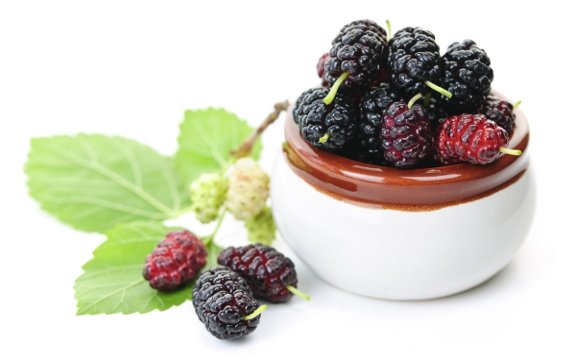Study Finds Mulberry Leaf Boosts Heart Health, Prevents Heart Disease

 Heart disease is the leading cause of death in the United States, killing about 600,000 people each year. Poor diets, lack of physical exercise, and also exposure to environmental toxins are key factors in heart disease risk. But what if some of the physical risk factors for cardiovascular disease could be reduced significantly by something as unassuming as mulberry leaf? That’s just what some recent research has found.
Heart disease is the leading cause of death in the United States, killing about 600,000 people each year. Poor diets, lack of physical exercise, and also exposure to environmental toxins are key factors in heart disease risk. But what if some of the physical risk factors for cardiovascular disease could be reduced significantly by something as unassuming as mulberry leaf? That’s just what some recent research has found.
According to researchers with Thailand’s Chulalongkorn University, the ancient mulberry leaf can not only lessen arterial inflammation, but can lower both triglycerides and low-density lipoprotein levels as well.
Published in Biomed Research International, the study tested 24 patients over a period of three months. At the onset of the study, all of them had “high cholesterol”, higher-than-normal low-density lipoprotein and serum triglycerides. None of them were on medication and none of them were diagnosed with any other medical conditions.
Throughout the three month period, each participant was given 280 mg of mulberry leaf (Morus alba L., Moraceae) three times each day after eating. They were re-tested at 35-day intervals.
“After the 12 weeks, all of the patients had lower serum triglycerides and LDL-c levels. The average drop in triglycerides was 10.6% and LDL-c levels dropped by an average of 8.2% from levels at the beginning of the study. HDL-c levels also increased among the group – an average of 6.3% across the board.”
C-reactive protein was also measured. CRP is an inflammation marker that can identify general inflammation throughout the body, a precursor to heart disease. After the three month study, 16 of the 24 patients had lower levels of CRP, levels that continued to decrease each month.
Read: Broccoli Reduces Cardiovascular Disease Risk
The study concludes:
“Extraction of mulberry leaf powder by hot water exhibited strong antioxidative activity. This research also reveals the tendency of mulberry leaf powder in reducing serum LDL and triglyceride as well as blood vessel inflammation stemmed from dyslipidemia, by the measurement of decreased CRP levels. Moreover, mulberry leaf powder can increase the erythrocyte glutathione peroxidase activity and decrease 8-isoprostane in serum. No severe adverse reaction was found and minor side effects can be relieved by taking mulberry leaf tablets immediately after meals.”
This wasn’t the first and likely won’t be the last study on the heart disease preventative effects of mulberry leaf. Currently, mulberry leaf extract can easily be found online for purchase through natural health retailers.

Mulberry leaf extract is a component of Trisugar Shield from Life Extension. See Life Extension magazine Feb. 2014
I have 3 mulberry trees in my garden, can I use the leaves in some way?